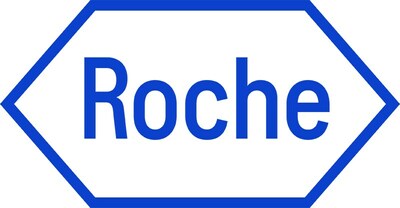Roche advances AI-driven cancer diagnostics by expanding its digital pathology open environment
- The Roche Digital Pathology Open Environment brings together a wide array of innovative AI-based pathology tools to help clinicians improve patient care and expand personalised healthcare.
- Roche is now integrating more than 20 artificial intelligence (AI) algorithms from eight new collaborators into its digital pathology open environment.
- AI technology helps enhance pathology with high value insights, which can benefit cancer patients through precision medicine leading to targeted treatment.
TUCSON, Ariz., Sept. 9, 2024 /PRNewswire/ -- Roche (SIX: RO, ROG; OTCQX: RHHBY) announced today the expansion of its digital pathology open environment with the integration of more than 20 advanced artificial intelligence (AI) algorithms from eight new collaborators. These strategic collaborations aim to support pathologists and scientists in cancer research and diagnosis by leveraging cutting-edge AI technology.
The seamless integration is facilitated through Roche's navify® Digital Pathology enterprise software, an application for the pathologist's workflow, which now incorporates a diverse range of AI-driven algorithms, creating easy access to third-party innovation. These AI tools are designed to enhance pathology insights, helping benefit cancer patients through precision medicine and enabling targeted treatments.
"We are excited to welcome these new collaborators into our digital pathology ecosystem," said Jill German, Head of Pathology Lab for Roche Diagnostics. "By combining our leadership in tissue diagnostics with a broad offering of state-of-the-art AI technology, we aim to revolutionise cancer research, diagnostics and treatment, ultimately helping clinicians improve the lives of patients worldwide."
The collaborators are:
- Deep Bio: Algorithm for prostate cancer detection, grading, and tumour quantification
- DiaDeep: Algorithms for breast cancer biomarker quantification
- Lunit: Tumour proportion score (TPS) analysis for non-small cell lung cancer
- Mindpeak: Algorithms for breast biomarkers and pan tumour PD-L1 for lung, gastric, esophageal, bladder and breast cancers
- Owkin: Algorithm for the screening of microsatellite stability in colorectal cancer
- Qritive: Algorithms for screening and grading of prostate cancer, analysing lymph nodes for metastasis, and screening for colon cancer
- Sonrai Analytics: Algorithm for determining microsatellite instability (MSI) status in colorectal cancer
- Stratipath: Algorithm for risk profiling of invasive breast cancer
With these new collaborations and integrations, Roche emphasises its commitment to improving patient outcomes and advancing personalised healthcare by providing scientists and clinicians with the resources they need to deliver precise and effective cancer diagnoses.
About Roche Digital PathologyAs the leading provider of pathology lab solutions, Roche delivers an end-to-end digital pathology solution from tissue staining to producing high-quality digital images that can be reliably assessed using automated AI-based clinical image analysis algorithms. Roche minimises variables that can impact analysis, and it is this end-to-end development that produces the quality results healthcare providers and researchers can depend on. With the acceleration of immunotherapy and the development of more complex assays, Roche is moving these traditionally research-oriented AI tools into routine clinical practice and is committed to investing in and shaping the future of pathology. The Roche Digital Pathology Open Environment* serves as a collaborative platform that brings together innovative AI-based pathology tools.
About Roche Founded in 1896 in Basel, Switzerland, as one of the first industrial manufacturers of branded medicines, Roche has grown into the world's largest biotechnology company and the global leader in in-vitro diagnostics. The company pursues scientific excellence to discover and develop medicines and diagnostics for improving and saving the lives of people around the world. We are a pioneer in personalised healthcare and want to further transform how healthcare is delivered to have an even greater impact. To provide the best care for each person we partner with many stakeholders and combine our strengths in Diagnostics and Pharma with data insights from the clinical practice.
In recognising our endeavour to pursue a long-term perspective in all we do, Roche has been named one of the most sustainable companies in the pharmaceuticals industry by the Dow Jones Sustainability Indices for the fifteenth consecutive year. This distinction also reflects our efforts to improve access to healthcare together with local partners in every country we work.
Genentech, in the United States, is a wholly owned member of the Roche Group. Roche is the majority shareholder in Chugai Pharmaceutical, Japan.
For more information, please visit www.roche.com.
All trademarks used or mentioned in this release are protected by law.* Some algorithms are Research Use Only and not for use in diagnostic procedures. Please consult with local markets on the regulatory status of these algorithms.
Roche Media Relations
Jo Lynn Garing, +1 317-363-7286 or jo_lynn.garing@roche.com
![]() View original content to download multimedia:https://www.prnewswire.com/news-releases/roche-advances-ai-driven-cancer-diagnostics-by-expanding-its-digital-pathology-open-environment-302241196.html
View original content to download multimedia:https://www.prnewswire.com/news-releases/roche-advances-ai-driven-cancer-diagnostics-by-expanding-its-digital-pathology-open-environment-302241196.html
SOURCE Roche
The views and opinions expressed herein are the views and opinions of the author and do not necessarily reflect those of Nasdaq, Inc.
